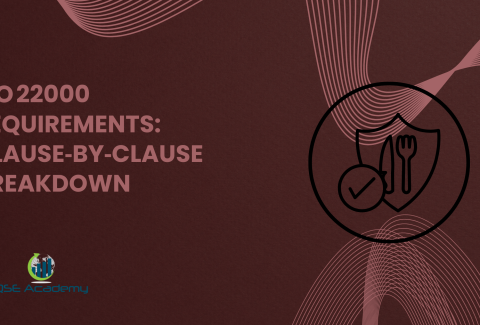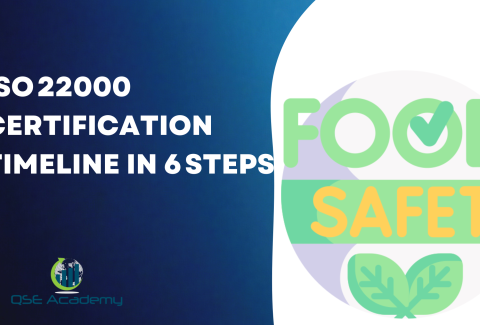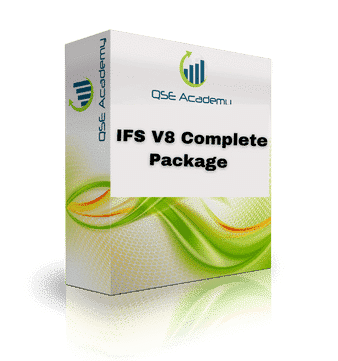IFS V8 Audit Prep: Announced vs Unannounced
Last Updated on December 23, 2025 by Hafsa J.
Preparing for IFS V8 Audits: What You Need to Know
If you’re navigating IFS Version 8 for the first time, it can feel like a big step up—especially when you hear the words unannounced audit option. I’ve supported food manufacturers and processors across different industries through IFS, FSSC 22000, and BRCGS audits for more than a decade, and one thing is consistent: the uncertainty around when auditors will walk in usually causes more stress than the actual requirements.
Most teams just want clarity—What’s different between an announced and unannounced audit? Which one makes sense for our business? And how do we prepare so no one panics when the auditor arrives?
By the end of this article, you’ll have a clear understanding of both audit models, how to choose the right approach, and practical strategies to make your site audit-ready every day—not just the week before certification.
Understanding the Two Audit Models: Announced vs Unannounced Under IFS V8
IFS V8 gives companies two options: an announced audit or an unannounced audit. The rules haven’t changed dramatically in concept, but the expectations absolutely have—especially around culture, traceability, and everyday compliance.
An announced audit comes with a planned date. You know when it’s happening, and most companies use that time to tidy up, complete refresher training, and close open gaps.
The unannounced model works differently. You’re given a window—usually several months—and the auditor can arrive on any operational day during that timeframe.
Here’s what I’ve noticed: companies that rely heavily on last-minute “audit season cleanup” struggle with unannounced audits because their daily execution isn’t consistent enough.
A simple rule I share with clients:
IFS V8 expects compliance to be lived, not staged.
Common mistake:
Teams often think unannounced means tougher requirements. In reality, the standard stays the same—the environment changes.
 Choosing Announced or Unannounced: Strategy, Customer Expectations, and Risk
Choosing Announced or Unannounced: Strategy, Customer Expectations, and Risk
Deciding between the two is as much business strategy as compliance strategy.
Some companies choose announced audits because:
- They’re new to certification.
- They still have seasonal instability.
- They’re recovering from past nonconformities.
Others choose unannounced audits because:
- Major retail or private label customers require it.
- It demonstrates a higher level of maturity.
- It can improve reputation and reduce buyer audit frequency.
One client of mine—an SME bakery—chose unannounced after two cycles of strong announced results. Their largest retailer saw the shift as a commitment to transparency and increased their order volume the following year. Sometimes the decision isn’t only about compliance—it’s about market positioning.
Pitfall to avoid:
Choosing based on comfort instead of business value.
Preparing for an Unannounced Audit: Building Daily Audit Readiness
Unannounced audits require a mindset shift. You can’t rely on a sprint before the audit—you need consistent habits.
What actually works is:
- Daily internal walk-throughs
- Short training refreshers
- Real-time corrections
- Document control discipline
A food manufacturer I supported achieved a near-perfect audit after switching to weekly micro-audits. They didn’t spend more time—just used it differently.
Here’s the truth:
Teams don’t fail unannounced audits because they don’t know the requirements—they fail because they’re inconsistent with them.
Preparing for an Announced Audit: Planning, Improvements, and Focused Execution
Announced audits still require discipline, but you have predictability on your side.
Most organizations benefit from a structured plan:
- Internal audit and gap review
- Close nonconformities with evidence
- Refresh training and competency checks
- Conduct a mock audit interview with process owners
- Validate records: traceability, CCP monitoring, maintenance, pest control
- Final site walk-through the week before
Pro Tip I share with every team:
Train people to speak confidently about their process—not about the standard.
Auditors want to hear clarity, ownership, and consistency—not memorized terminology.
Audit Day Expectations: Behavior, Sampling, and Flow
Regardless of the model, the audit follows the same structure and scoring. The difference lies in momentum.
During announced audits, teams tend to be more prepared and rehearsed. In unannounced audits, auditors get a snapshot of how the facility truly runs.
Auditors will:
- Start with an opening meeting (even unannounced)
- Spend significant time on the production floor
- Conduct traceability testing
- Review records, training, equipment, and food defense
One thing I’ve seen repeatedly:
Companies that use visual SOPs, simple work instructions, and clear labeling perform noticeably better—because they reduce guesswork and dependency on memory.
FAQs
Do retailers prefer unannounced audits under IFS V8?
Many do—especially large retail chains. It demonstrates reliability and everyday compliance.
Can we switch from announced to unannounced mid-cycle?
Yes, but timing, contract terms, and audit window rules apply. It’s best discussed early with your certification body.
Are unannounced audits stricter?
No. The standard and scoring are identical—the only difference is timing and operational reality.
Conclusion — Final Thoughts and Next Step
Whether you choose an announced or unannounced audit model, the core requirement remains the same: consistency. IFS V8 is built around real-world execution, food-safety culture, and traceability confidence—not staged compliance.
If you want a simple next step, begin with a one-page weekly readiness routine. Small habits turn into predictable results—and predictable results make audits far less stressful.
When you’re ready, I can help you build:
- A weekly audit-readiness checklist
- A mock audit script
- Or a full internal audit and training plan
Whether it’s ISO 9001, ISO 22000, or the cosmetics-focused ISO 22716, I’ve spent my career I’m not here to call myself an expert—I prefer “enthusiast” because I truly love what I do. When I’m not writing about standards, you’ll probably find me playing Piano 🎹, connecting with people, or diving into my next big project💫. I’m an engineer specialized in the food and agricultural industry
make ISO standards less intimidating and more approachable for everyone.
turning complex jargon into clear, actionable steps that businesses can actually use.
There’s something incredibly rewarding about helping people navigate food safety and quality management systems
in a way that feels simple, practical, and even enjoyable.
I have a Master’s in QHSE management and over 12 years of experience as a Quality Manager
I’ve helped more than 15 companies implement ISO 9001, ISO 22000, ISO 22716, GMP, and other standards
My clients include food producers, cosmetics manufacturers, laboratories, and service companies
I believe quality systems should be simple, useful, and efficient.










